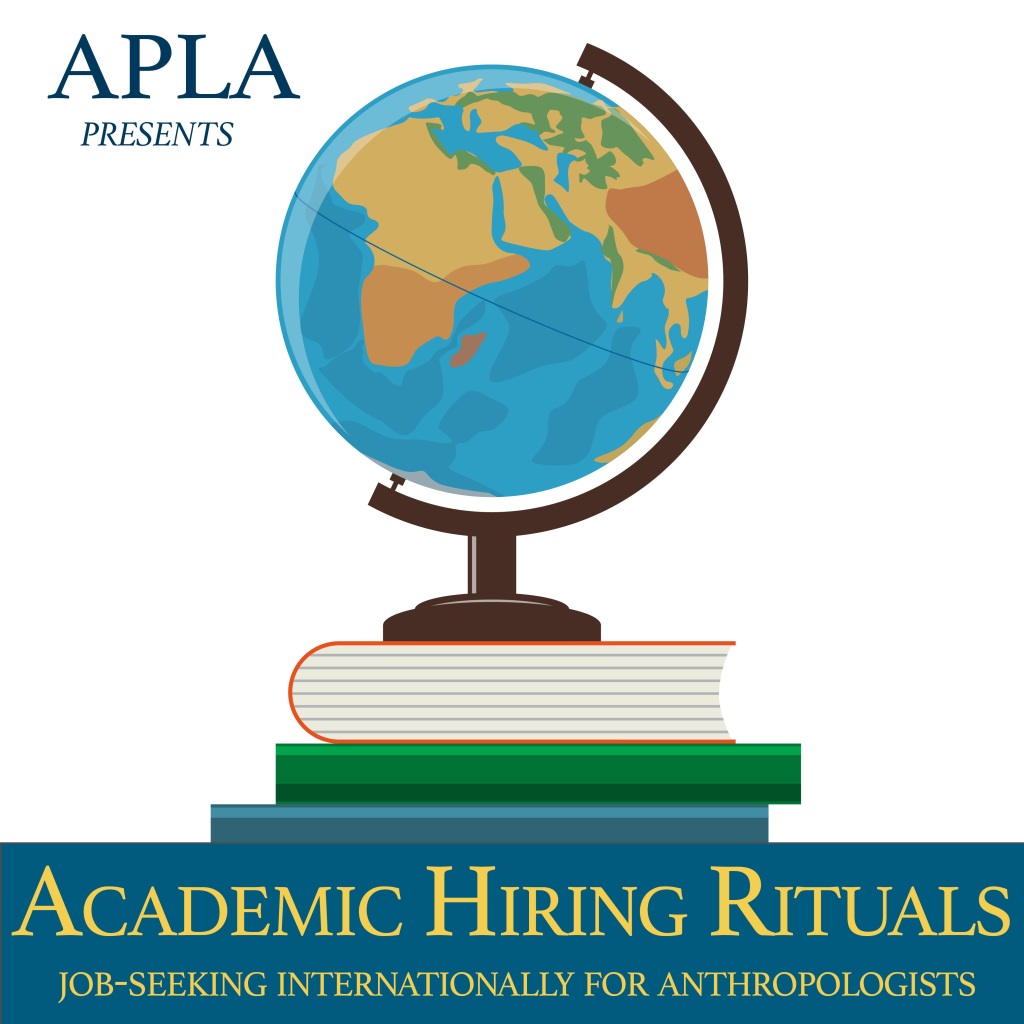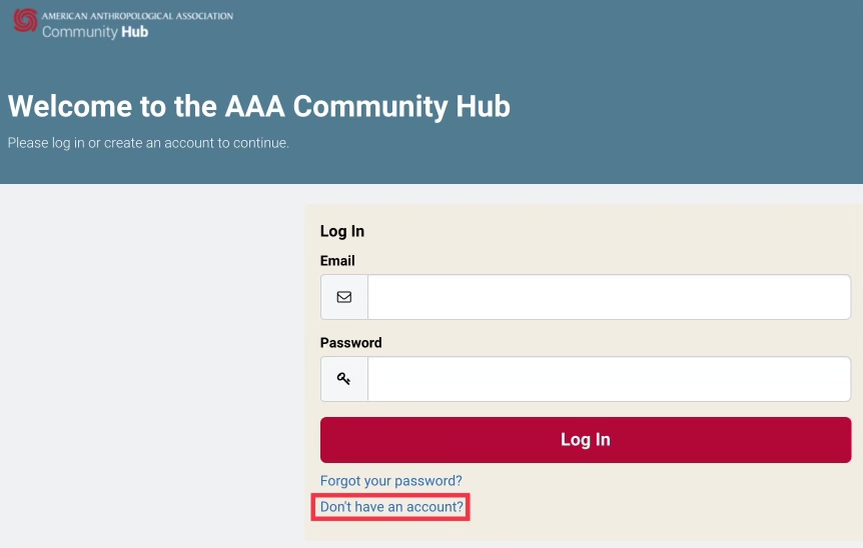Presented by the Association for Political and Legal Anthropology

Our first podcast episode explores how law schools hire. Reversing the more typical focus on what a job applicant should do, this podcast asks academics with considerable experience on hiring committees how hiring works from the perspective of an evaluator of applicants. We address questions such as: How are job ads written? How are long lists decided? What and how can an applicant negotiate? The full episode transcript is also available: https://politicalandlegalanthro.org/?page_id=7433
Distributed in collaboration with the American Anthropological Association
Law School Hiring Podcast Chapters
You may listen to the full podcast above or on the Apple podcast services. If you only want to listen to specific chapters, you can do so below.
Chapter One: Introduction
Chapter Two: The Job Ad
Chapter Three: The FAR Form
Chapter Four: The Job Talk Paper
Chapter Five: Determining the Long List
Chapter Six: The Screening Interview
Chapter Seven: Determining the Short List
Chapter Eight: The Campus Visit
Chapter Nine: The Decision
Chapter Ten: Negotiating the Job Offer
APLA Precariat Fund
We ask people who find listening to the podcast useful to contribute to an APLA fund to help precariat academics with emergency health care and moving costs. The money accumulated in this mutual aid fund will be distributed on a first-come, first-serve basis every summer. We are asking that you help support fellow scholars in need of financial help as they move between non-tenure track jobs, or deal with unexpected health costs. Your donations will help form a mutual aid society moderated by APLA and be greatly appreciated. Directions and a link are below.
Guests
Anya Bernstein is a professor at the University at Buffalo School of Law. She teaches and writes about administrative law, civil procedure, legal interpretation, and the cultures of bureaucracy. With training in both law and anthropology, Bernstein uses approaches from both disciplines to explore how judges and administrators legitimize their actions and imagine their government. She has done extensive research in both the United States and Taiwan, giving her work a comparative perspective. Bernstein holds a J.D. from Yale Law School and a Ph.D. in sociocultural anthropology from the University of Chicago. Her work has appeared in (or will soon be published in) The University of Chicago Law Review, Cornell Law Review, William and Mary Law Review, The Yale Journal on Regulation, Law and Social Inquiry, and PoLAR: Political and Legal Anthropology Review, among others. Before coming to Buffalo, she worked as a law clerk to Judge Guido Calabresi on the Second Circuit Court of Appeals and a Bigelow Fellow and Lecturer in Law at the University of Chicago Law School.
Deepa Das Acevedo is a legal anthropologist at University of Alabama’s law school. She is a Trustee of the Law & Society Association (Class of 2024), an Associate Editor for the Law & Society Review, a Contributing Editor to the Work Law section of JOTWELL, and a member of the advisory board for Law & Social Inquiry. Deepa’s research blends ethnographic fieldwork and anthropological theory with doctrinal and policy analysis to provide new insights about legal rules and institutions. In addition to her work on the law and politics of India, she studies employment regulation in the gig economy, and is exploring methodological and theoretical developments in the anthropology of law. Her research has been selected for the Stanford/Harvard/Yale Junior Faculty Forum and has been supported by the American Council of Learned Societies, the Social Science Research Council, the American Philosophical Society, the Committee on Southern Asian Studies at The University of Chicago, and the Research Grants Committee at the University of Alabama.
Gwen Gordon was an assistant professor in the department of Legal Studies and Business Ethics at the Wharton School at University of Pennsylvania. Her research was an ethnographically informed comparative corporate law, focusing specifically on the intersection of indigenous peoples’ cultural norms with issues of corporate governance and social responsibility. Gwen did long-term ethnographic fieldwork in New Zealand with an indigenously owned corporation. She received a B.A. in 2002 from Cornell University and her J.D. in 2006 from Harvard Law School, where she focused upon social and economic human rights for indigenous groups. She received a Ph.D. in anthropology from Princeton University in 2014; prior to her appointment Gwen worked as a corporate attorney in the London and New York offices of Shearman and Sterling LLP.
Elizabeth Mertz is a leading legal anthropologist, and a pioneer in the field of law and language. She uses this background to study legal language in the United States, with a special focus on law school education. Her research also examines the problems involved in translating between law and social science, particularly in the domain of family law. In addition to her position on the faculty of the University of Wisconsin, she is a Senior Research Fellow at the American Bar Foundation, where she has conducted empirical research on legal education. The results of this research have appeared in numerous journals and edited collections. Her book, The Language of Law School: Learning to “Think Like a Lawyer” (Oxford University Press) was 2008 co-winner of the Herbert Jacob Book Prize, awarded by the Law & Society Association for “distinguished work that fulfills the high expectations of interdisciplinary scholarship that define this association.” Mertz’s study has drawn national attention from scholars interested in reforming the current system of legal education in the U.S.
Riaz Tejani is Associate Professor of Business Ethics at the University of Redlands. His current research explores ethics and knowledge production in Law & Economics with attention to distributive justice, welfarism, and theories of society. His first book, Law Mart: Justice, Access, and For-Profit Law Schools (Stanford, 2017), was an ethnography of for-profit legal education during and after the global financial crisis, and his second, Law and Society Today (University of California, 2019), critically surveyed themes in socio-legal studies after neoliberalism. Riaz is Co-director of the Law and Society Association’s CRN 28 on New Legal Realism, and a member of the board of conveners for the Law and Humanities Junior Scholars Workshop. His work can be found in journals such as American Ethnologist, Alabama Law Review, Georgetown Journal of Legal Ethics, and Political and Legal Anthropology Review, and ithas been cited in venues ranging from the Harvard Law Review and Yale Law Journal Forum, to The Nation, Huffington Post, and NPR. Riaz holds a PhD in social anthropology from Princeton University and a JD from the USC Gould School of Law, where he was a Fellow at the Center for Law, History, and Culture.
Production Staff
This podcast was created by Elisabetta Carosi (sound editor); Jennifer Curtis (editor); Anna Eisenstein (production assistant and narrator); Owen Kohl (assistant editor); and Ilana Gershon (producer).
How to Donate to the Precariat Fund
AAA members, follow this link and login to your AAA account to donate:
https://my.americananthro.org/donatenow?pid=a1B8W00000D0r5HUAR
To ensure the donation is directed to the Precariat Fund, complete the final item on the donation page, “About Your Donation.”
Select the “Tribute Type” toggle menu and select “In Honor Of.” Then enter as the first name: “APLA Precariat” and last name “Fund.”

If you are not a member of AAA, you may also use this link, but rather than logging in, choose the “Don’t have an account?” link below the login button.

You will be directed to a page that asks you to supply your name and email address, and to create a password. Once you have logged in or completed the non-member form, below, you’ll reach the APLA donation page.

